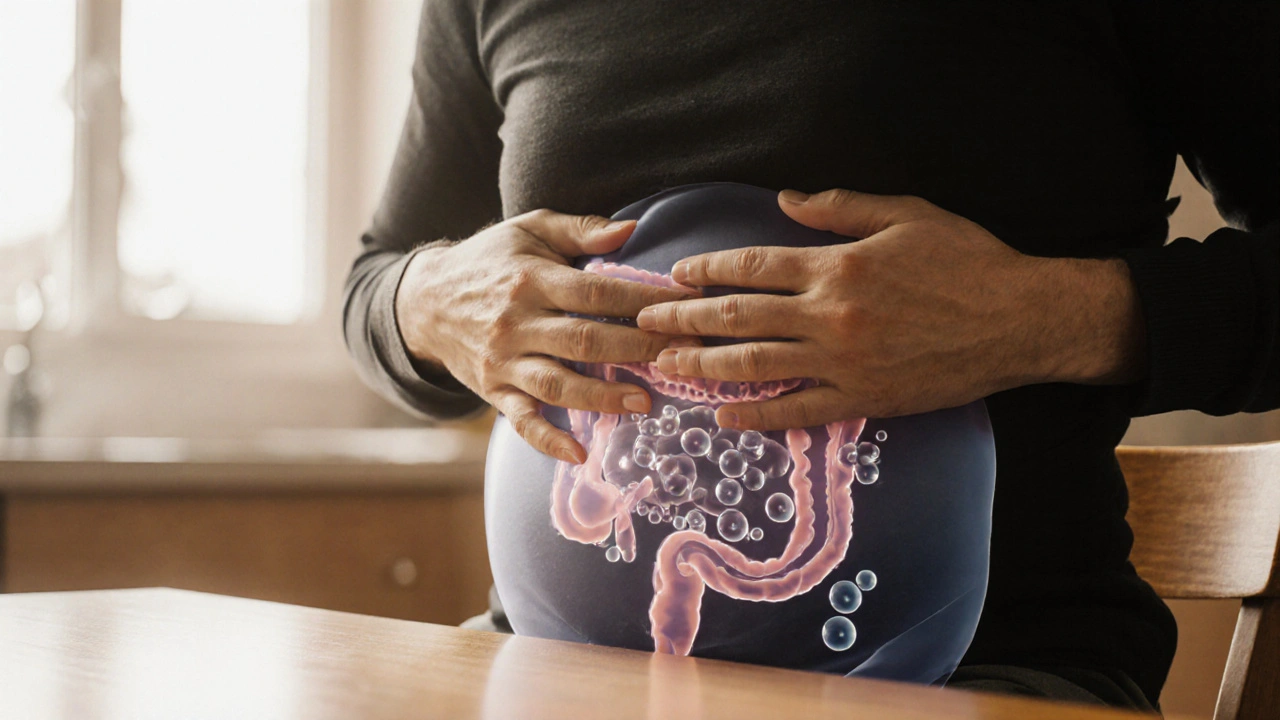When dealing with Constipation, infrequent or hard bowel movements that cause discomfort. Also known as slow gut transit, it signals that something in the digestive rhythm is off.
If you’re searching for constipation relief, you’ll find that two everyday tools often make the biggest difference: dietary fiber, plant‑based material that adds bulk to stool and speeds transit and laxatives, medicines that either soften stool or stimulate bowel muscles. Fiber works by pulling water into the intestines, creating a softer, bulkier stool; laxatives step in when diet alone isn’t enough. Together they form the first line of defense against the discomfort of irregular bowels.
Gut motility, the wave‑like contraction that pushes food through your intestines, is the engine behind regular movements. Anything that slows this engine—low fluid intake, sedentary habits, or certain medications—can trigger constipation. Hydration acts as the oil for this engine; drinking enough water keeps the stool pliable and eases its passage. Simple tweaks like sipping a glass of water before each meal can noticeably improve transit time.
Many prescription drugs list constipation as a side effect. Opioids, antacids containing aluminum or calcium, and some antidepressants can all dull the gut’s natural rhythm. Knowing which medicines you take helps you anticipate problems and discuss alternatives or protective measures with your doctor.
Beyond food and meds, everyday habits matter too. Ignoring the urge to go, sitting for prolonged periods, and rushing bathroom visits can all disrupt the coordination between the colon and the brain. Setting a regular time, allowing a relaxed posture, and gently massaging the abdomen can cue your body to move.
When home strategies fall short, it’s worth checking for underlying conditions such as irritable bowel syndrome, thyroid disorders, or diabetes, all of which can affect stool consistency. A brief medical evaluation can rule out serious issues and point you toward targeted treatments.
Below you’ll find a curated collection of articles that dive deeper into each of these areas—ranging from fiber‑rich food lists and safe over‑the‑counter laxative options to drug‑interaction guides and when to seek professional help. Use them as a roadmap to reclaim comfortable, regular digestion.

Fiber supplements help with constipation but can interfere with medications. Learn the right timing-2 hours before or after pills-to avoid reduced effectiveness and dangerous side effects.

Learn how meteorism (bloating) and constipation are linked, discover practical diet and lifestyle fixes, and know when to seek medical help for lasting relief.